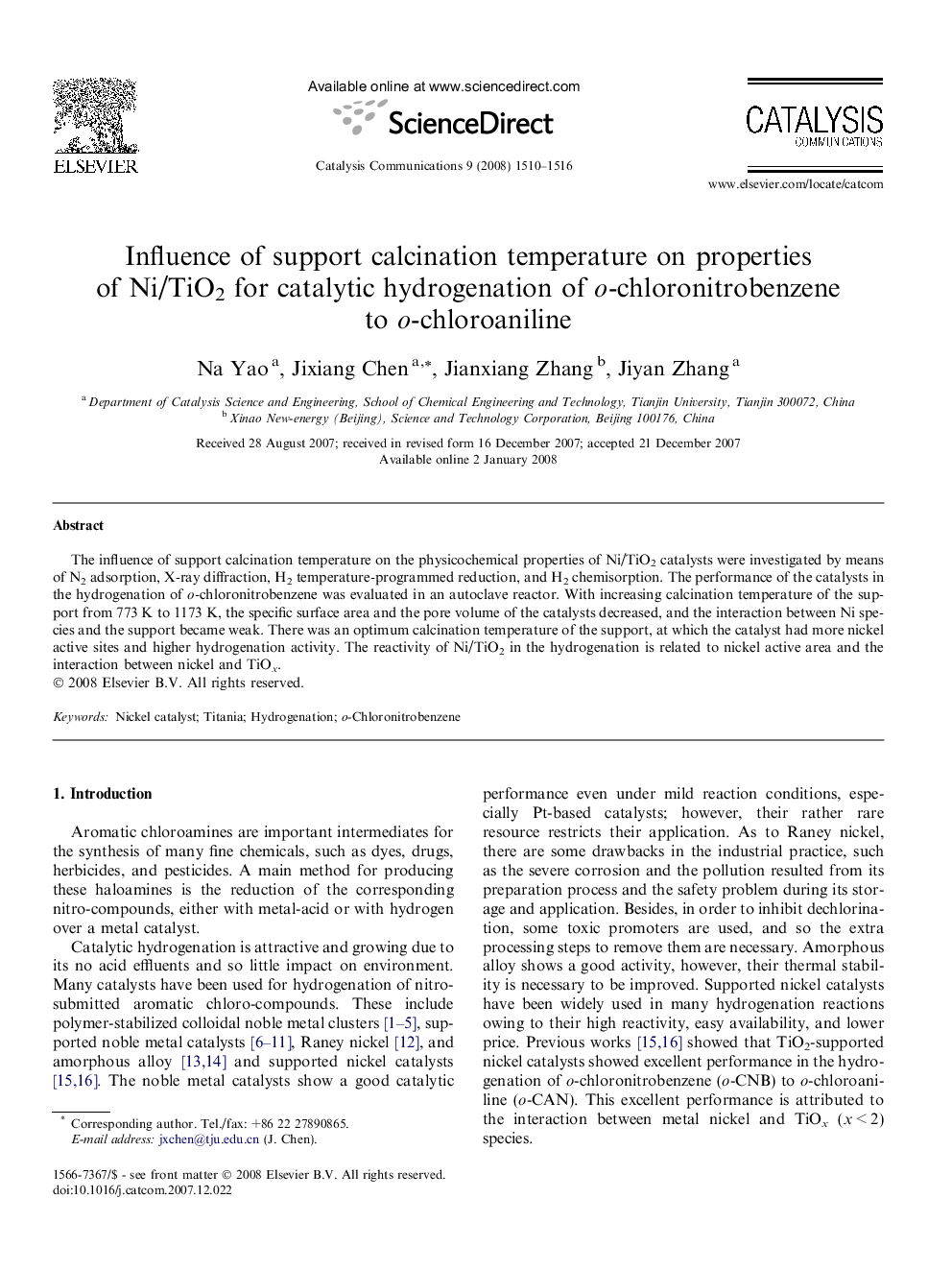| Article ID | Journal | Published Year | Pages | File Type |
|---|---|---|---|---|
| 52183 | Catalysis Communications | 2008 | 7 Pages |
The influence of support calcination temperature on the physicochemical properties of Ni/TiO2 catalysts were investigated by means of N2 adsorption, X-ray diffraction, H2 temperature-programmed reduction, and H2 chemisorption. The performance of the catalysts in the hydrogenation of o-chloronitrobenzene was evaluated in an autoclave reactor. With increasing calcination temperature of the support from 773 K to 1173 K, the specific surface area and the pore volume of the catalysts decreased, and the interaction between Ni species and the support became weak. There was an optimum calcination temperature of the support, at which the catalyst had more nickel active sites and higher hydrogenation activity. The reactivity of Ni/TiO2 in the hydrogenation is related to nickel active area and the interaction between nickel and TiOx.
